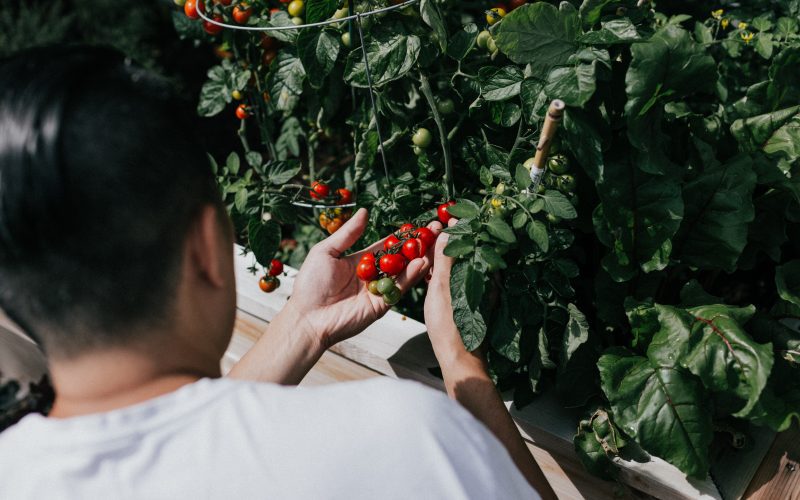Do you want to teach your kids about sustainability and eco-friendliness in a fun and engaging way? Look no further than gardening! Not only is gardening an enjoyable activity for kids, but it also promotes important values such as responsibility, patience, and respect for nature. In this blog post, we’ll explore some exciting gardening activities that will not only keep your kids entertained but also foster their love for the environment. Get ready to dig into the world of sustainable gardening with your little ones!
Introducing kids to gardening
Introducing kids to gardening can be a great way to teach them about the importance of taking care of our environment. It’s also a fantastic opportunity for parents and children to spend quality time together while learning new skills.
One way to introduce your child to gardening is by starting with something simple, like planting herbs or flowers in small containers. This will give them a chance to observe the growth process up close and take pride in their accomplishments as they see their plants thrive.
Another option is creating a mini garden plot either in your backyard or at a community garden. Involve your kids in choosing what vegetables or fruits they would like to grow, and let them help with preparing the soil, sowing seeds, watering plants and harvesting produce once ready.
It’s important to keep gardening activities age-appropriate so that children don’t get overwhelmed or disinterested. Start slowly and gradually increase complexity as they gain confidence and interest.
Introducing kids early on into the wonders of gardening can spark their curiosity about nature from an early age – leading eventually towards environmentally conscious decisions throughout their lives.
The benefits of gardening for kids
Gardening has numerous benefits for kids, both physically and mentally. It is an excellent way to introduce them to the natural world and help them develop a deeper appreciation for it.
Firstly, gardening encourages outdoor activity and exercise. Kids can spend hours digging, planting, watering, weeding, and harvesting in the garden without even realizing they are getting physical exercise. This helps promote a healthy lifestyle while also exposing children to fresh air and sunlight.
Secondly, gardening teaches patience as kids must wait for their plants to grow before they can reap their rewards. It also fosters responsibility as children learn how to care for living things by regularly watering their plants or removing weeds.
Thirdly, gardening provides opportunities for sensory exploration as children get hands-on experience with soil textures, smells of flowers or herbs growing in the garden beds. They might squish some mud between their fingers or smell sweet snapdragons up close!
Lastly but not least important benefit of gardening is that it cultivates creativity skills through designing their gardens (flowering borders or vegetable patches) which gives kids an outlet to express themselves creatively while being productive at the same time.
These benefits show that introducing your child early on into the joys of gardening will be beneficial later on in life; promoting healthy habits such as physical activity outdoors along with developing patience & responsibility capabilities which play essential roles throughout one’s life!
Gardening activities for kids
Gardening is a fun activity for kids that promotes creativity, learning and love for nature. There are numerous gardening activities that children can engage in to learn about plants, the environment and sustainability while having fun outdoors.
One of the easiest gardening activities for kids is planting seeds or small plants in pots. Kids can decorate their pots with paint or stickers before filling them with soil and planting their chosen seeds or seedlings. This activity teaches children how to care for plants and watch them grow over time.
Another fun gardening activity for kids is creating a fairy garden. Children can use small figurines, stones, mosses and other natural materials to create a mini magical world within their garden bed. This encourages imagination, creativity and problem solving skills as they design their own space.
Children can also learn about composting by creating a worm farm using kitchen scraps such as fruit peels or coffee grounds. They will have fun observing worms breaking down food waste into rich compost which they can then use to fertilize their garden beds.
Kids can learn about sustainability by creating an eco-friendly herb garden filled with herbs like basil, mint or rosemary which not only provide delicious flavors but also help reduce carbon footprint by reducing reliance on store-bought products.
There are countless ways that parents or educators can encourage children’s interest in gardening through engaging activities that promote learning about environmental awareness while having fun outdoors.
Teaching kids about sustainability and eco-friendliness through gardening
Teaching kids about sustainability and eco-friendliness through gardening can be a fun and interactive way to introduce them to the importance of taking care of our planet. One great way to do this is by composting, which involves turning food scraps and yard waste into nutrient-rich soil for plants.
Another activity that can teach kids about sustainable gardening practices is using rainwater instead of tap water to water their plants. This not only conserves a precious resource but also keeps harmful chemicals found in tap water, such as chlorine, from entering the garden ecosystem.
Kids can also learn about reducing waste by reusing materials around the garden. For example, old yogurt containers or egg cartons can be repurposed as seedling starters rather than being thrown away. Additionally, teaching kids how to save seeds from mature fruits and vegetables allows them to grow new plants without having to buy more seeds.
Discussing the importance of supporting pollinators like bees and butterflies in the garden can help kids understand why planting native species is important for maintaining a healthy ecosystem. There are many ways that gardening can teach children valuable lessons about sustainability and environmental responsibility while also providing an enjoyable outdoor activity.
Conclusion
Gardening is a fantastic way to introduce kids to the wonders of nature, and at the same time teach them about sustainability and eco-friendliness. This is important for their future as well as that of our planet.
Through gardening activities such as composting, planting native species, conserving water, reducing waste and using natural fertilisers, we can instil in children an appreciation for the environment. By getting involved in these activities with them they will also learn valuable skills such as responsibility, patience and problem solving.
So whether it’s starting a small garden bed or simply growing herbs on your windowsill, there are so many ways you can involve your children in sustainable gardening practices. Not only will this be beneficial for their physical health but also their mental wellbeing by connecting them with nature.
Incorporating these practices into your child’s life from an early age will help equip them with knowledge which they can use throughout their lives to make environmentally conscious decisions that contribute towards sustainability. So let’s encourage our little ones to get outside and start exploring all that nature has to offer!












